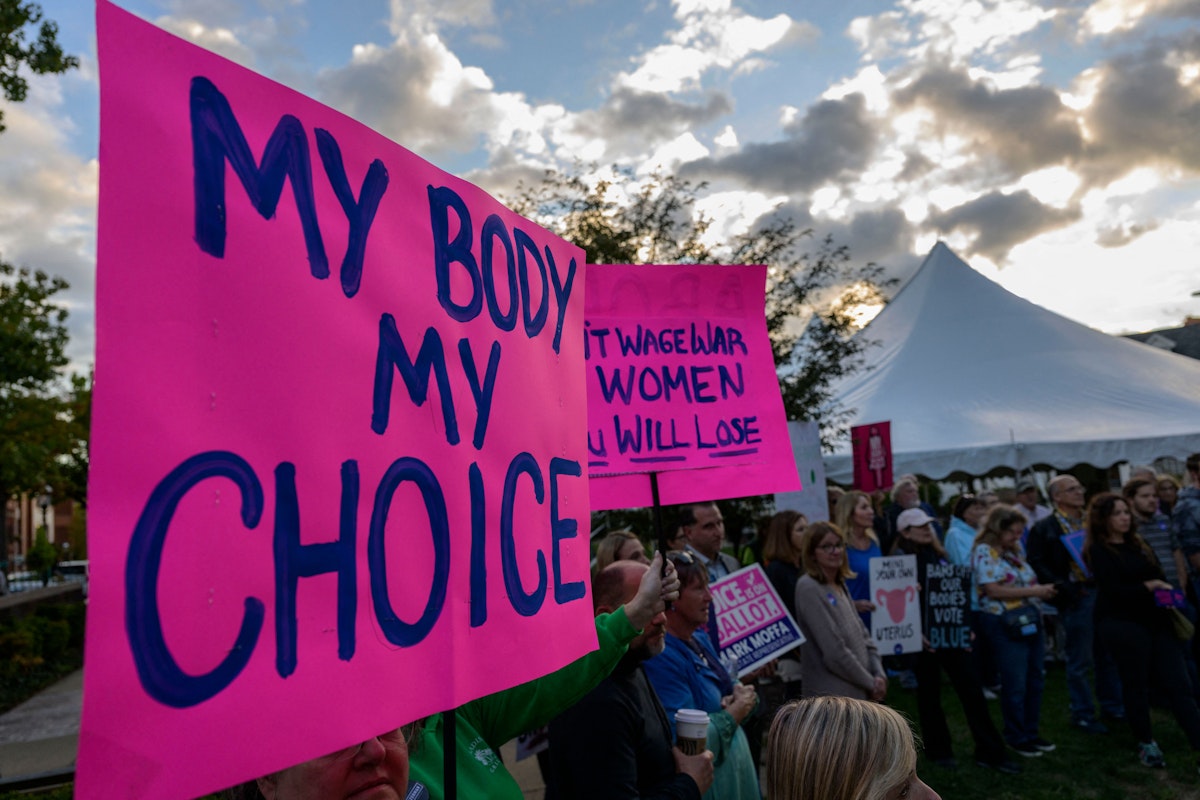Pennsylvania Supreme Court Sets Up Showdown on Medicaid Abortion Ban
The Pennsylvania state Supreme Court ruled Monday that a 40-year-old law banning Medicaid from covering abortions could be considered discriminatory based on sex, and sent the case back to a lower court, setting up a battle to establish financial coverage for the procedure.The case stems from the Pennsylvania Abortion Control Act of 1982, which prohibits Medicaid from covering abortions unless the pregnancy is the result of rape or incest or it puts the patient’s life at risk. A state Supreme Court ruling three years later established that the law is not a form of sex discrimination, meaning it cannot be challenged under the Pennsylvania Equal Rights Amendment.In 2019, a coalition of seven state abortion providers filed a lawsuit arguing that the law discriminates based on sex and therefore violates the ERA. The plaintiffs urged the justices to recognize that the state constitution guarantees people the right to abortion access.On Monday, the justices stopped just short of stating a constitutional right to abortion, but they did rule 3–2 that the state’s ERA applied to Medicaid coverage of abortion access. Justices Christine Donohue and David Wecht, who were in the majority, said that “the right to reproductive autonomy, like other privacy rights, is fundamental.”In the 219-page majority opinion, Donohue wrote that “the right to make healthcare decisions related to reproduction is a core important right encompassed by the enmeshed privacy interest protected by our Charter.”“Whether or not to give birth is likely the most personal and consequential decision imaginable in the human experience. Any self-determination is dependent on the right to make that decision,” she said.Justice Kevin Dougherty, who concurred with the overall majority decision, called Donohue and Wecht’s argument “incredibly insightful.” But he said he felt the gist of the current case was too narrow to decide the constitutionality of abortion.Donohue noted that refusing to cover abortion discriminates against people trying to exercise the right to reproductive autonomy and therefore violates state constitutional protections against discrimination by the government.“The government does not bear a constitutional obligation to provide medical care to the indigent, nor is the government required to financially support the exercise of a fundamental right, including a woman’s exercise of her right to reproductive autonomy,” Donohue wrote.“However, once the government chooses to provide medical care for the indigent, including necessary care attendant to pregnancy for those women exercising their right to reproductive autonomy who decide to carry a pregnancy to term, the government is obligated to maintain neutrality so as not to intrude upon the constitutional right to full reproductive autonomy, which includes the right to terminate a pregnancy.”The case will now return to the lower Commonwealth Court to determine if Medicaid should cover abortion and if abortion is constitutionally protected. The state government must prove that banning Medicaid from covering most abortions does not violate the ERA.David Cohen, one of the lawyers for the plaintiffs, told The New Republic that the Pennsylvania government has a “very high bar” to clear to justify Medicaid excluding abortion coverage after this ruling.The government must prove it has a “compelling state interest” in prohibiting Medicaid from covering abortion, and no other “less intrusive methods” to implement the policy, Cohen, who is also a constitutional law professor at Drexel University’s Kline School of Law, explained. The “least intrusive method” is a way of analyzing laws to determine whether they do the least amount of harm possible in achieving the measure’s stated goal.“The court said that [the law] is a form of sex discrimination and that sex discrimination under the state’s Equal Rights Amendment needs to be very strictly scrutinized,” Cohen said. “But it’s not an absolute bar. It’s not like the court didn’t say all sex discrimination is prohibited. It’s just a very difficult hurdle for the state to overcome.”

The Pennsylvania state Supreme Court ruled Monday that a 40-year-old law banning Medicaid from covering abortions could be considered discriminatory based on sex, and sent the case back to a lower court, setting up a battle to establish financial coverage for the procedure.
The case stems from the Pennsylvania Abortion Control Act of 1982, which prohibits Medicaid from covering abortions unless the pregnancy is the result of rape or incest or it puts the patient’s life at risk. A state Supreme Court ruling three years later established that the law is not a form of sex discrimination, meaning it cannot be challenged under the Pennsylvania Equal Rights Amendment.
In 2019, a coalition of seven state abortion providers filed a lawsuit arguing that the law discriminates based on sex and therefore violates the ERA. The plaintiffs urged the justices to recognize that the state constitution guarantees people the right to abortion access.
On Monday, the justices stopped just short of stating a constitutional right to abortion, but they did rule 3–2 that the state’s ERA applied to Medicaid coverage of abortion access. Justices Christine Donohue and David Wecht, who were in the majority, said that “the right to reproductive autonomy, like other privacy rights, is fundamental.”
In the 219-page majority opinion, Donohue wrote that “the right to make healthcare decisions related to reproduction is a core important right encompassed by the enmeshed privacy interest protected by our Charter.”
“Whether or not to give birth is likely the most personal and consequential decision imaginable in the human experience. Any self-determination is dependent on the right to make that decision,” she said.
Justice Kevin Dougherty, who concurred with the overall majority decision, called Donohue and Wecht’s argument “incredibly insightful.” But he said he felt the gist of the current case was too narrow to decide the constitutionality of abortion.
Donohue noted that refusing to cover abortion discriminates against people trying to exercise the right to reproductive autonomy and therefore violates state constitutional protections against discrimination by the government.
“The government does not bear a constitutional obligation to provide medical care to the indigent, nor is the government required to financially support the exercise of a fundamental right, including a woman’s exercise of her right to reproductive autonomy,” Donohue wrote.
“However, once the government chooses to provide medical care for the indigent, including necessary care attendant to pregnancy for those women exercising their right to reproductive autonomy who decide to carry a pregnancy to term, the government is obligated to maintain neutrality so as not to intrude upon the constitutional right to full reproductive autonomy, which includes the right to terminate a pregnancy.”
The case will now return to the lower Commonwealth Court to determine if Medicaid should cover abortion and if abortion is constitutionally protected. The state government must prove that banning Medicaid from covering most abortions does not violate the ERA.
David Cohen, one of the lawyers for the plaintiffs, told The New Republic that the Pennsylvania government has a “very high bar” to clear to justify Medicaid excluding abortion coverage after this ruling.
The government must prove it has a “compelling state interest” in prohibiting Medicaid from covering abortion, and no other “less intrusive methods” to implement the policy, Cohen, who is also a constitutional law professor at Drexel University’s Kline School of Law, explained. The “least intrusive method” is a way of analyzing laws to determine whether they do the least amount of harm possible in achieving the measure’s stated goal.
“The court said that [the law] is a form of sex discrimination and that sex discrimination under the state’s Equal Rights Amendment needs to be very strictly scrutinized,” Cohen said. “But it’s not an absolute bar. It’s not like the court didn’t say all sex discrimination is prohibited. It’s just a very difficult hurdle for the state to overcome.”



